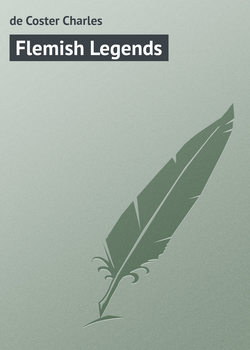Читать книгу Flemish Legends - de Coster Charles - Страница 25
Sir Halewyn
ОглавлениеI. Of the two castles
Sir Halewyn lifted up his voice in a song.
And whatever maid heard that song must needs go to him straight away.
And now to all good Flemings will I tell the tale of this Halewyn and his song, and of the brave maid Magtelt.
There were two proud castles in the province of Flanders. In one dwelt Sir Roel de Heurne, with the lady Gonde, his good wife; Toon the Silent, his son; Magtelt, his fair daughter, and a host of pages, grooms, varlets, men-at-arms, and all the other members of the household, among whom an especial favourite was Anne-Mie, a girl of gentle blood, maid to the lady Magtelt.
Of everything that was made by his peasants, Sir Roel took naught but what was the best.
And the peasants said of him that it was a good master who took only as much as he needed, when he might have left them with nothing.
In the other castle lived Sir Halewyn the Miserable, with his father, brother, mother, and sister, and a large following of rascals and brigands.
And these were an ill-favoured crew, I can tell you, past masters of robbery, pillage, and murder, such as it is not good to meet at too close quarters.
II. Of Dirk, called the Crow
This family were issue by direct line of Dirk, the first of the Halewyns, to whom was given the name of the Crow, because he was as greedy of booty as a crow is of carrion.
And also because he was clad all in black, and his men with him.
This Dirk, who lived in the time of the great wars, was like a thunderbolt in battle, where, with his only weapon, a heavy club, furnished with a beak at one side, he broke javelins, splintered lances, and tore away mail as if it had been cloth; and no one could well resist his onslaught. And in this manner he so frightened his enemies that when they saw Dirk and his black soldiers bearing down upon them, shouting, yelling, without fear of any one, and in great number, they gave themselves up for dead before ever battle was joined.
When victory was won and the more important booty divided (whereof Dirk always secured the lion’s share and never came off badly), the other barons and their knights would leave the rest of the field to him and his followers, and would go off, saying: “The pieces are for the crow.”
No other man-at-arms would dare to stay behind then, or he would have been quickly taken and slain without waiting. And thereafter Dirk’s men would begin to play the crow in earnest; cutting off fingers to get the rings on them, even of those not yet dead, who cried out to them for succour; chopping off heads and arms so that they might pull away clothes the more easily. And they even fought amongst themselves, and sometimes killed one another, over the bodies of the dead, for the sake of neck-pieces, straps of hide, or more paltry stuff still.
And stayed sometimes on the battlefield over this business three days and three nights.
When all the dead were stark naked they piled up their gains into carts which they brought for this purpose.
And with these they returned to Dirk’s castle, there to hold high revel and have good cheer. On the way they fought the peasants, taking whatever women and girls were at all comely, and did with them what they pleased. In this way they passed their lives fighting, pillaging, robbing the helpless, and caring nothing at all for either God or devil.
